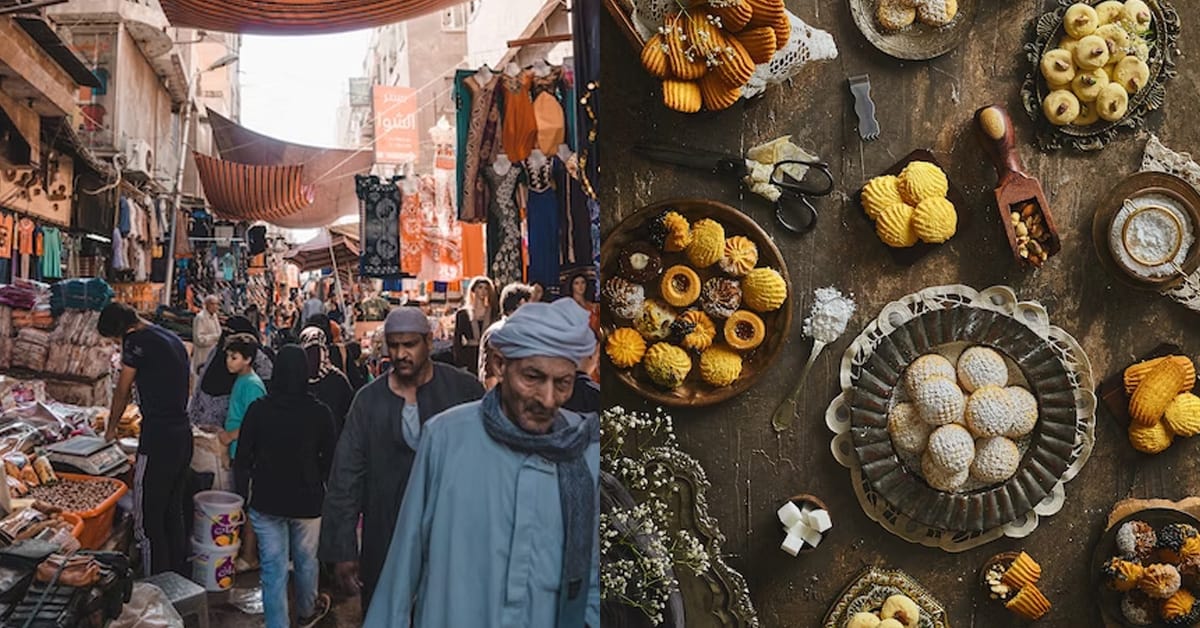Egyptian cuisine is a fusion of various cultures and influences that have shaped the country’s culinary traditions over the centuries. The cuisine is known for its rich flavors, aromatic spices, and diverse ingredients that reflect the country’s geography and history.
Egyptian food is a blend of Mediterranean, Middle Eastern, and African flavors, making it a unique and delicious cuisine. From the famous koshari to the mouth-watering falafel, Egyptian food has something to offer for everyone.
Chinese cuisine
Is Egyptian food halal?
Most Egyptian food is halal, meaning it is permissible according to Islamic dietary laws.
However, some dishes may contain non-halal ingredients such as pork or alcohol, so it is important to check the ingredients before consuming.
Additionally, some restaurants may not be certified halal, so it is important to inquire about their certification before dining.
What kind of food do Egyptian eat?
Egyptian cuisine is diverse and influenced by various cultures such as Arabic, Mediterranean, and African.
Some popular dishes in Egypt include:
- Ful medames: A dish made of fava beans, garlic, and lemon juice.
- Koshari: A vegetarian dish made of rice, lentils, chickpeas, and pasta, topped with tomato sauce and fried onions.
- Shawarma: A Middle Eastern dish made of marinated meat (usually chicken or beef) cooked on a spit and served in a pita bread with vegetables and sauces.
- Molokhia: A soup made of jute leaves, chicken or beef, and served with rice or bread.
- Fattah: A dish made of layers of bread, rice, and meat, topped with tomato sauce and garlic.
- Ta’meya: Egyptian falafel made of fava beans, herbs, and spices.
- Baklava: A sweet pastry made of layers of phyllo dough filled with nuts and honey syrup.
- Basbousa: A sweet cake made of semolina, coconut, and syrup.
- Mahshi: Vegetables such as eggplant, zucchini, and peppers stuffed with rice, herbs, and spices.
- Konafa: A sweet pastry made of shredded phyllo dough filled with cheese or cream and soaked in syrup.
How can you tell if the food is halal in Egypt?
In Egypt, halal food is widely available, and it is usually indicated by a halal certification label or sign. The certification is issued by the Egyptian government’s Islamic Affairs Ministry, and it ensures that the food has been prepared according to Islamic dietary laws.
Many restaurants and food establishments will display a halal certificate or sign in their window or menu. If unsure, you can always ask the staff if the food is halal.
Is it hard to find halal food in Egypt?
Egypt is a predominantly Muslim country, and halal food is widely available in most areas.
However, finding halal food in some tourist areas or areas with a significant Christian population may be more challenging.
It is always best to ask locals or research beforehand to ensure that the food you consume is halal.
Is Egyptian food healthy?
Egyptian food can be healthy as it includes a variety of vegetables, legumes, and grains.
Some popular dishes like ful medames (fava bean stew), koshari (a mix of rice, lentils, and pasta), and molokhia (a soup made from jute leaves) are rich in fiber, protein, and vitamins.
However, some dishes, such as kofta (meatballs) and mahshi (stuffed vegetables), may be high in fat and calories.
It is important to balance the intake of different types of food and practice moderation.
What is Egyptian food similar to?
Egyptian food is similar to other Middle Eastern and Mediterranean cuisines, such as Lebanese, Syrian, Turkish, and Greek.
It often includes dishes like falafel, hummus, baba ghanoush, shawarma, kebabs, and stuffed grape leaves.
However, Egyptian cuisine also has its own unique dishes and flavors, such as koshari, ful medames, and molokhia.
Steps to find halal food in Egypt
1. Look for halal certification: Look for halal certification on the packaging or menu of the food you are interested in. This certification ensures that the food has been prepared according to Islamic dietary laws.
2. Ask locals: Ask locals for recommendations on where to find halal food. They may be able to suggest restaurants or markets that cater to halal food.
3. Check online: Check online for halal food options in Egypt. There are many websites and apps that provide information on halal restaurants and food options.
4. Visit halal markets: Visit halal markets to find a variety of halal food options. These markets often sell fresh meat, fruits, and vegetables that are halal certified.
5. Look for vegetarian options: If you are unable to find halal meat, look for vegetarian options. Many restaurants and markets offer vegetarian dishes that are halal certified.
6. Avoid non-halal ingredients: Be aware of non-halal ingredients such as pork, alcohol, and gelatin. These ingredients are not allowed in halal food and should be avoided.

